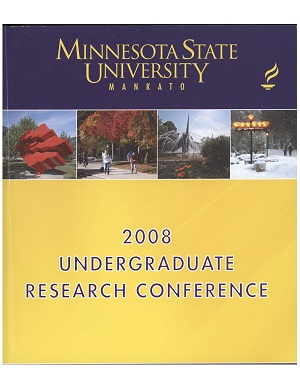Political Agendas in the Letters of Hildegard of Bingen
Location
CSU 204
Start Date
21-4-2008 1:00 PM
End Date
21-4-2008 3:30 PM
Student's Major
English
Student's College
Arts and Humanities
Mentor's Name
Cecilia Pick
Mentor's Department
World Languages and Cultures
Mentor's College
Arts and Humanities
Description
Hildegard of Bingen is mentioned only briefly in historical accounts of musicology, religious philosophy, and biographical studies of various monarchs from the twelfth century; however, she played a crucial role in maintaining the Catholic Church's influence as a political institution. In her correspondences, Bingen used enormous amounts of prophetic language to refer to many current events that were happening throughout Western Europe. In her letters to churchmen, bishops, popes, and kings, she counseled against rampant heresies and political behavior contradicting the will of the Church. The sickly tenth daughter of a German aristocratic family, Hildegard was born 44 years after the beginning of the East-West Schism of 1054, and lived through the 1st Lateran Council held in 1123 by the Catholic Church. This ecumenical council brought many changes into the lives of the clergy such as: the ban against priests being able to marry and the abolishment of the emperors' claims that they had the right to interfere with papal elections. Bingen wrote a great deal to notable political figures admonishing their behavior, while at the same time encouraged them to return to the Catholic Church. My analysis of her letters revealed her intensive engagement in the turbulent politics of her time.
Political Agendas in the Letters of Hildegard of Bingen
CSU 204
Hildegard of Bingen is mentioned only briefly in historical accounts of musicology, religious philosophy, and biographical studies of various monarchs from the twelfth century; however, she played a crucial role in maintaining the Catholic Church's influence as a political institution. In her correspondences, Bingen used enormous amounts of prophetic language to refer to many current events that were happening throughout Western Europe. In her letters to churchmen, bishops, popes, and kings, she counseled against rampant heresies and political behavior contradicting the will of the Church. The sickly tenth daughter of a German aristocratic family, Hildegard was born 44 years after the beginning of the East-West Schism of 1054, and lived through the 1st Lateran Council held in 1123 by the Catholic Church. This ecumenical council brought many changes into the lives of the clergy such as: the ban against priests being able to marry and the abolishment of the emperors' claims that they had the right to interfere with papal elections. Bingen wrote a great deal to notable political figures admonishing their behavior, while at the same time encouraged them to return to the Catholic Church. My analysis of her letters revealed her intensive engagement in the turbulent politics of her time.
Recommended Citation
Sweeney, Anne. "Political Agendas in the Letters of Hildegard of Bingen." Undergraduate Research Symposium, Mankato, MN, April 21, 2008.
https://cornerstone.lib.mnsu.edu/urs/2008/oral-session-07/4




